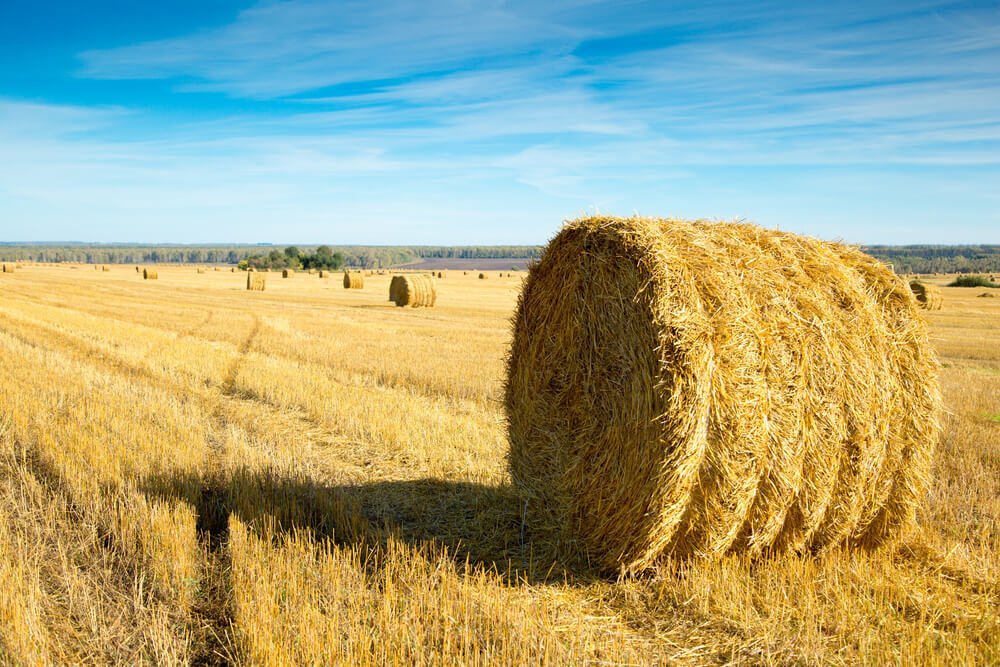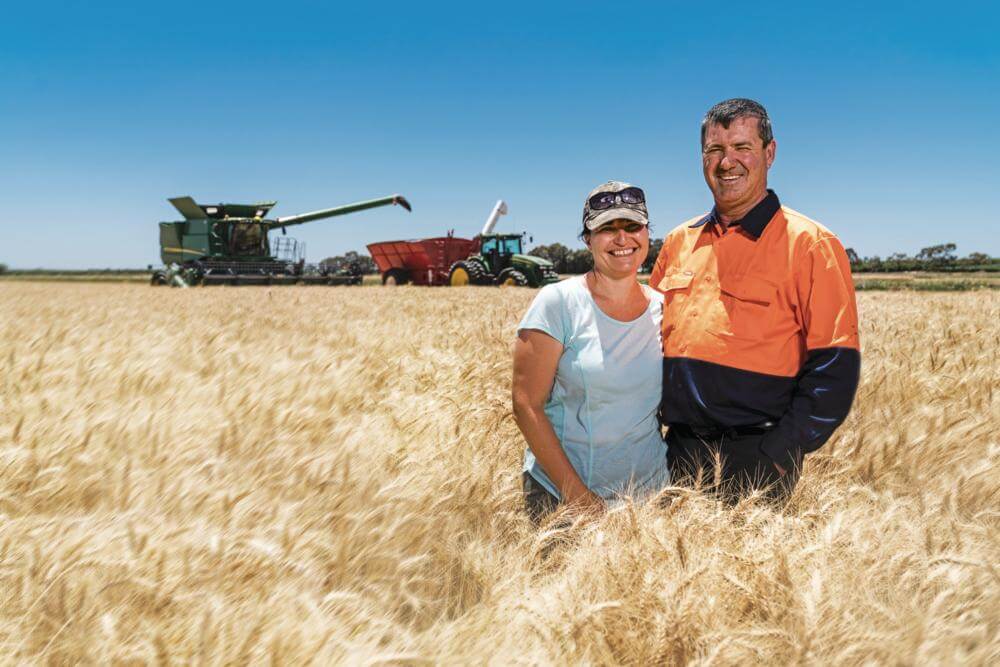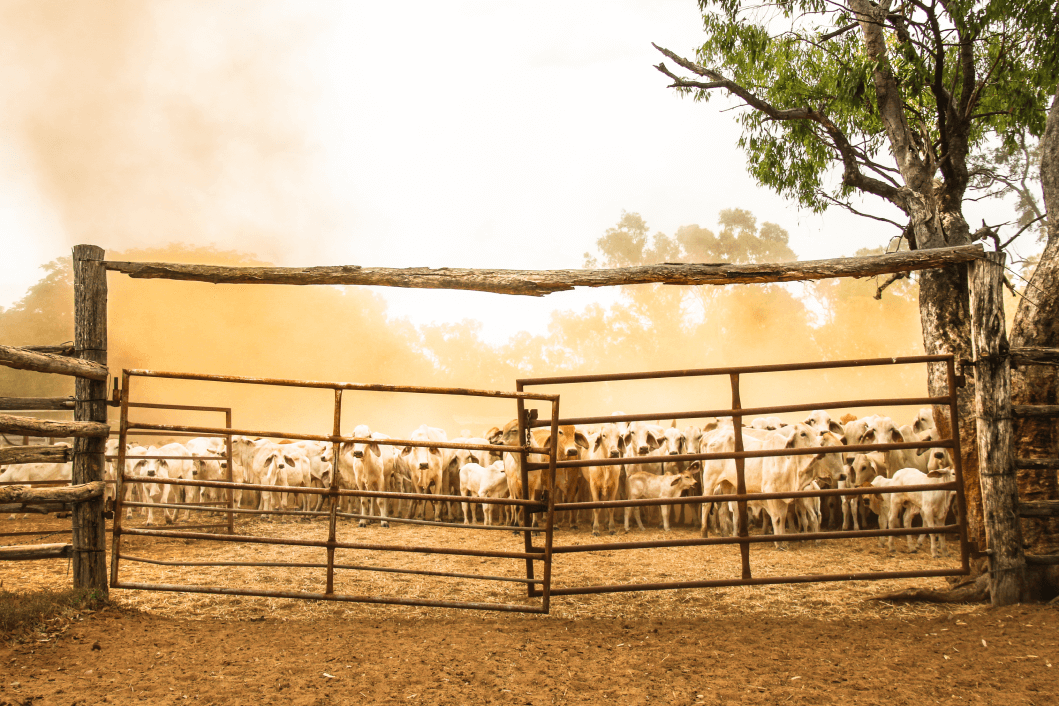Farm succession planning is one of the most important aspects of farm management, but it can be challenging to know where to start. This blog post will discuss tips for preparing your farm for the next generation.
Planning ahead is essential for a successful transition as there are many things to consider. If you are unsure where to begin, don’t worry! We will walk you through the process step by step.
The importance of cohesive rural succession planning
According to The National Farmers’ Federation, 99% of 134,000 farms in Australia are family owned. This, coupled with the fact that the average age of a farm owner is now 52 years old, means that farm succession planning is more important than ever.
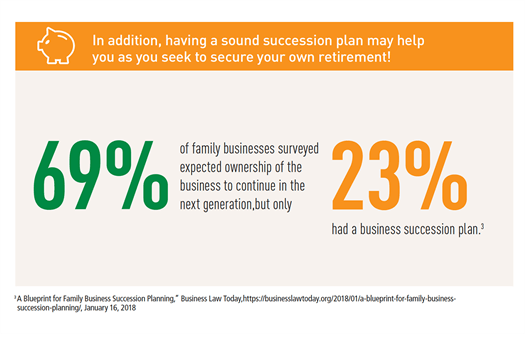
There are many reasons why farm succession planning is so important. First and foremost, it ensures that your farm will continue to operate after you retire or pass away. It also allows you to choose who will take over the farm and how they will do so. Additionally, succession planning can help to avoid family conflict and ensure that your farm business is financially secure.
Unfortunately, farm succession planning is often overlooked or put off until it’s too late. This can be for various reasons, including the fact that it can be a complex and emotional process. However, avoiding farm succession planning can have disastrous consequences.
If you’re a farm owner, it’s essential to start thinking about succession planning now, but many farmers are unsure of the process or where to start. Here are a few tips on farm succession planning:
- Talk to your family and make sure everyone is on the same page. This is a crucial first step in farm succession planning, as it can avoid any conflict or surprises down the road.
- Educate yourself and your successors about the farm business. This includes understanding the financial aspects of the farm, as well as the day-to-day operations.
- Create a written plan. This farm succession plan will outline your goals for the farm and how you want it to be run in the future. Include details on who will take over the farm, their role, and how they will be compensated.
- Update your plan regularly. As your farm business changes and evolves, so too should your farm succession plan. Review it every few years to ensure it still meets your needs and the needs of your family farm.
- Take advice from the experts. Having experts in agricultural finance in your corner can help make farm succession planning much easier. They can offer valuable insights and guidance on the best way to transition your farm to the next generation.
Now, we’ve covered the importance of farm succession planning and some key tips on how to get started; let’s break down the process.
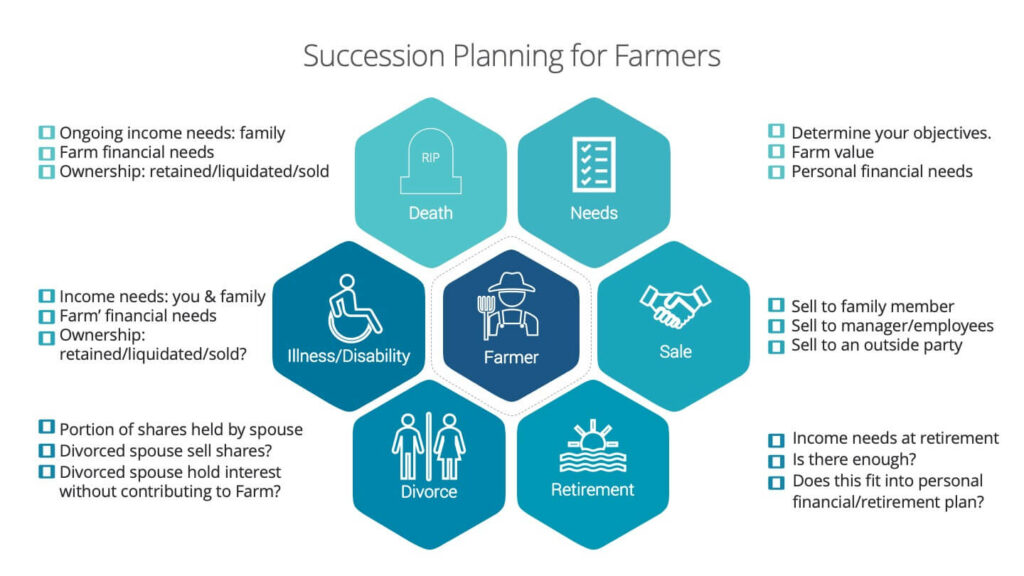
The succession planning process
Each succession plan is as individual as the farm itself. The process will vary depending on the farm’s size, structure, and goals. That being said, there are some critical steps that all farm succession plans should include:
Information gathering and transparency
Knowing the exact value of your farm and its assets is paramount in the succession planning process. This will help ensure that your farm is transferred fairly and equitably. All family members should be involved in this stage, so there are no surprises down the road.
Some of the most important things to include:
- Farm financial statements
- Farm Maps and Cropping Plans
- Equipment lists
You’ll also want a breakdown of the farm business structure, including:
- Who owns what
- What debts are owed (farm loans)
- What is the farm’s tax liability is
- How is the farm incorporated (if at all)
These numbers will help you and your family have a more informed discussion about succession planning. If possible, work with a farm financial advisor or accountant to get an accurate picture of your farm’s value.
Establishing objectives
With the data in hand, you can establish farm succession objectives. Do you want the farm to stay in the family? Are you hoping to sell it outright? Would you consider leasing the land to another farmer?
Objectives will help guide the farm succession conversation and keep everyone on track as decisions are made. Be sure to discuss your objectives with your spouse, children, farm manager and other key stakeholders.
From there, you can develop a farm succession plan that will work for your family and your farm.
The consulting process
The best way to avoid conflict in the succession process is to have open and regular communication coupled with a thorough consultation process with farm family members, farm employees, farm lenders and other key stakeholders.
Through transparent communication, you can develop a farm succession plan that will work for everyone involved.
Finding the correct option
Once the consultation process has been completed, and the objectives are set, it’s time to create a list of actionable tasks and find the right farm succession plan for your farm.
At this stage, employing a professional facilitator with a background in farm business management, family dynamics and mediation can be extremely helpful.
The farm succession facilitator will assist the family in exploring all options and potential scenarios. This will help to identify any roadblocks that need to be addressed before moving forward with the farm succession plan.
Making the final decision
Once you and your family have explored all options and scenarios, it’s time to decide who will take over the farm business.
It’s important to remember that farm succession planning is a process, not a one-time event. The farm succession plan should be reviewed and updated regularly to ensure it still meets the needs of everyone involved.
Maintaining complete transparency and open communication with all family members throughout the farm succession planning process is essential to its success. By working cooperatively, you can ensure that the farm business will be passed down to the next generation successfully.
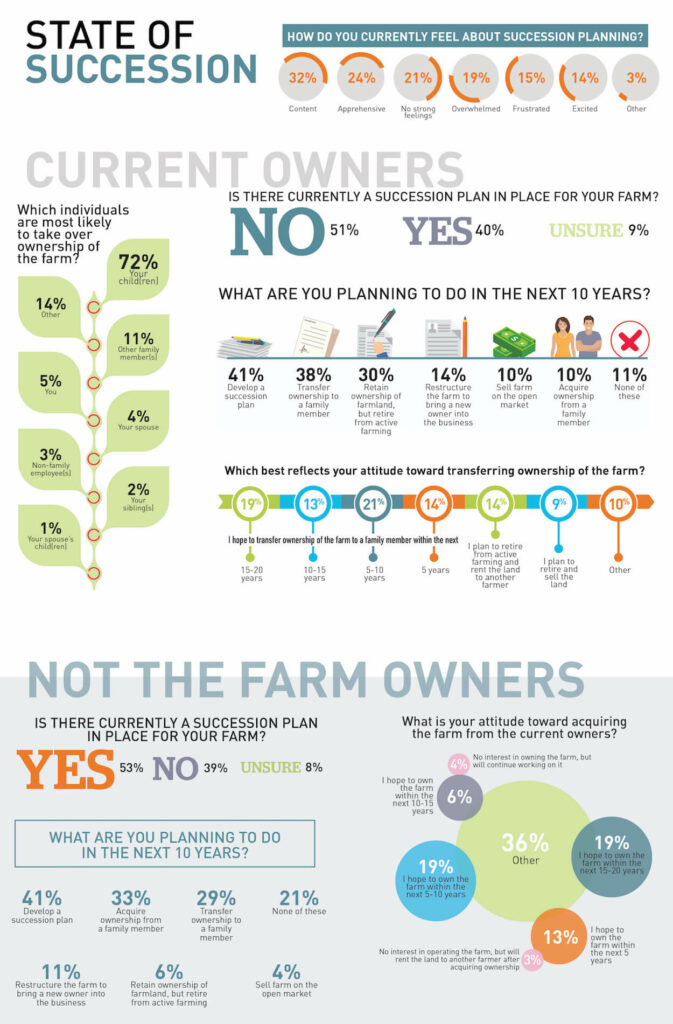
Farm succession planning for the future
If the farmer is interested in long-term success, it’s recommended that they stay involved in the business even after the transition. Retiring farmers have invaluable knowledge, which can be extremely helpful for the family member taking over. It’s essential to openly accept the youthful enthusiasm that ambitious family members bring to the business. Although sensitive in nature, farm succession planning should not have to be complicated or tedious. It can be an opportunity and ritual to turn over the soil and plant seeds for the future.



